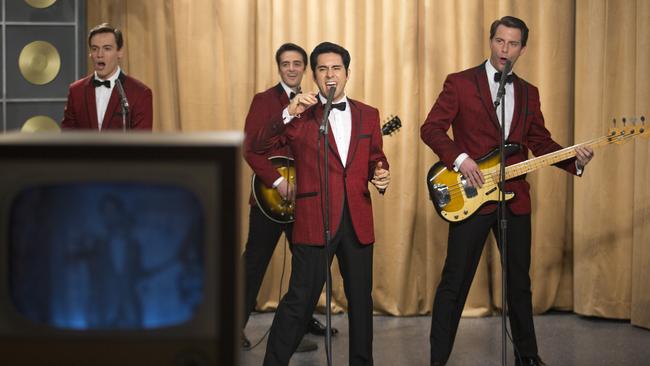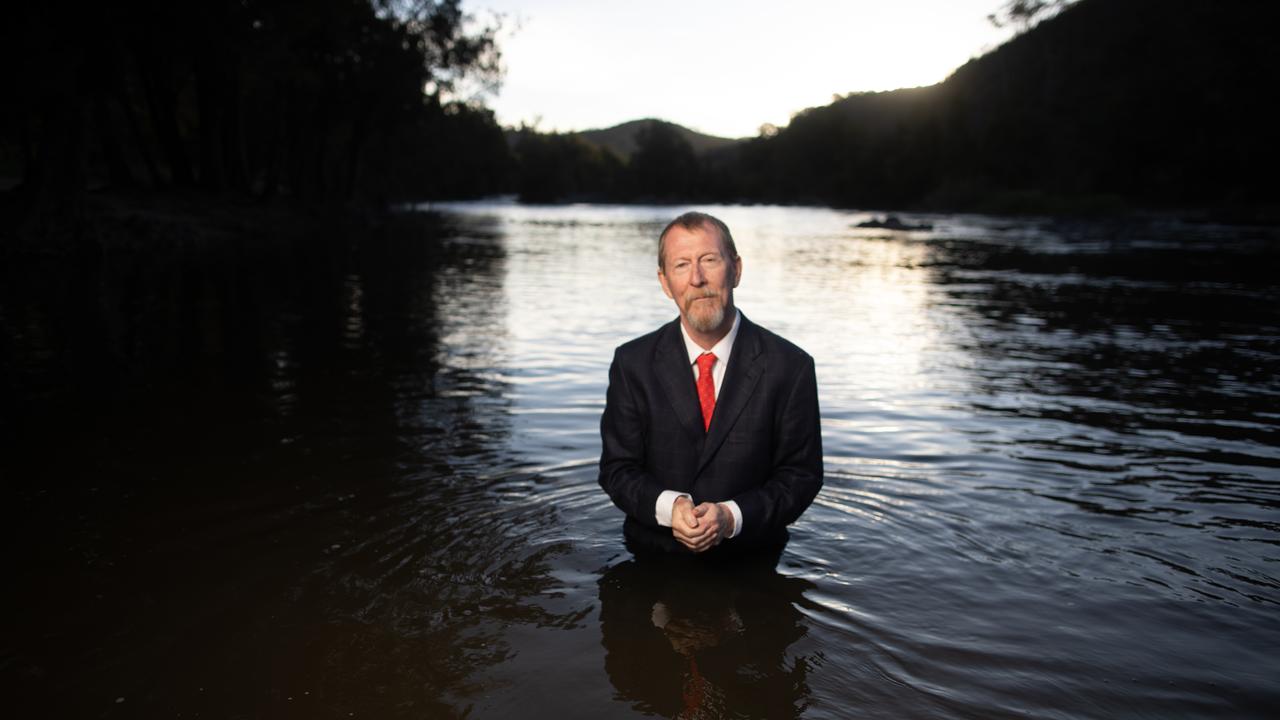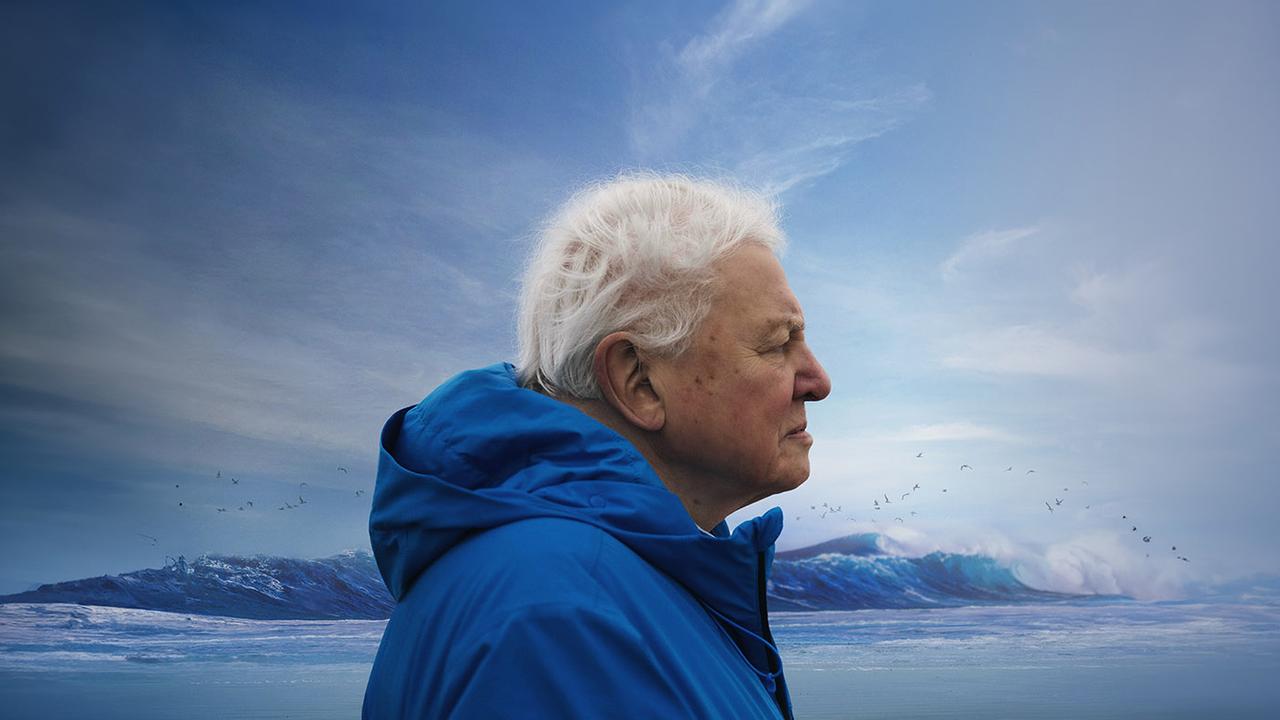Old pro Clint Eastwood pulls it off again with Jersey Boys
CLINT Eastwood’s big-screen adaptation of the triumphant, Tony-winning Broadway musical Jersey Boys is defiantly proud of its unabashed theatricality.

FROM the vintage Warner Bros logos that bookend the film to its refreshingly leisurely throwback style of rags-to-riches-to-rags storytelling, director Clint Eastwood’s big-screen adaptation of the triumphant, Tony-winning Broadway musical Jersey Boys is defiantly proud of its unabashed theatricality. And it has every right to be: under Eastwood’s steady, practical supervision, this iteration of the Frankie Valli and the Four Seasons story is slick, kinetic and toe-tappingly true to the spirit of the quartet, the music and the revue.
Screenwriters Marshall Brickman and Rick Elice, who wrote the original Broadway show, wisely have kept its overall structure and even more shrewdly scrapped the onstage conceit in which each phase of the act’s career corresponded to one of the actual four seasons. Thus, each chunk of the film is narrated in part directly to camera by one of the four principal members of the group. Early in the proceedings, this has the effect of summoning up memories of every goombah drama Martin Scorsese ever made, but the feeling soon passes as the story gains traction.
In 1951 New Jersey, Tommy DeVito (Vincent Piazza) and Nick Massi (Michael Lomenda), with the younger Frankie Castelluccio (John Lloyd Young) in tow, spend their evenings honing their chops in a lounge band or, at Tommy’s instigation, dabbling in petty crime. The one thing the older guys are sure of is that Frankie has a remarkable voice that could be their ticket to the big time. Their guardian angel of sort is local mob boss Gyp DeCarlo (Christopher Walken), who weeps at the sound of Frankie’s falsetto.
Local hustler and singer Joey Pesci (Joseph Russo, as manic and bug-eyed as the real-life future actor he plays) introduces them to songwriter and singer Bob Gaudio (Erich Bergen), Frankie changes his last name to Valli, and the spark is there for something big.
Their rise to fame and subsequent implosion would come across as cliched in a written synopsis, but the sheer energy of the story’s telling and the immersive veracity of the production design leave little time for reflection. Tommy turns out to be a touchy hothead, terrible with money and resentful of Frankie’s allegiance with Bob, while Nick’s apparently easygoing nature masks a ticking time bomb of frustration. Still, they still manage to produce hit records under the tutelage of patient and visionary producer Bob Crewe (Mike Doyle). Each member of the band deals with challenging personal issues, and the eventual break-up is remedied in 1990 when the four originals are inducted into the Rock’n’Roll Hall of Fame.
All four of the principals save Piazza are drawn from various touring companies of the show, and they’re all quite good. And then, of course, there are the songs. The group was the biggest pop act in the world before the Beatles, and no one else sounded even remotely like them. With their soaring harmonies, Gaudio’s inspired songwriting and Valli’s immediately identifiable falsetto, their songs are familiar throwbacks to a very different time. While many exist in fragments or montages, there are a handful of complete numbers performed from start to finish, most memorably Cry to Me from quartet’s first meeting, Valli’s solo hit You’re Just Too Good to Be True and the imaginatively staged climactic number.
There are two filmmakers, both currently active, whose work ethics, methodologies and resulting large filmographies will not again be equalled. One is Woody Allen, who makes one film a year, uses a broad range of talent cast with instinctual accuracy and consistently garners major award nominations.
Eastwood is the other. His Malpaso production company banner has been flying proudly since 1967, and he is known as a no-nonsense filmmaker who brings in his movies on time — if not sooner — and usually under budget. He also has a soft spot for music, having composed and even played on the scores of some of his previous films. The combination of these two talents has resulted in a Broadway adaptation that hums with vigour, sings with the capricious unpredictability of fate and fame, and does firm and lasting justice to the legacy of that vintage studio logo.
David Stratton is on leave.
Jersey Boys (M)
4 stars
National release


